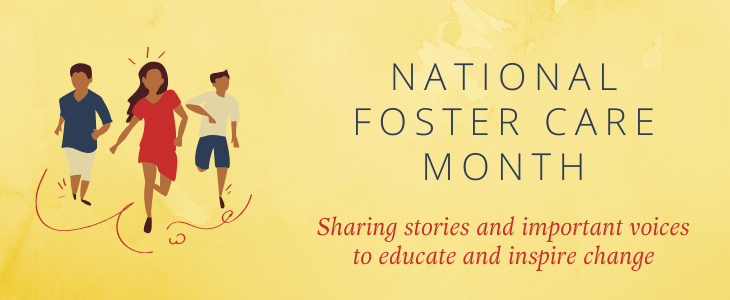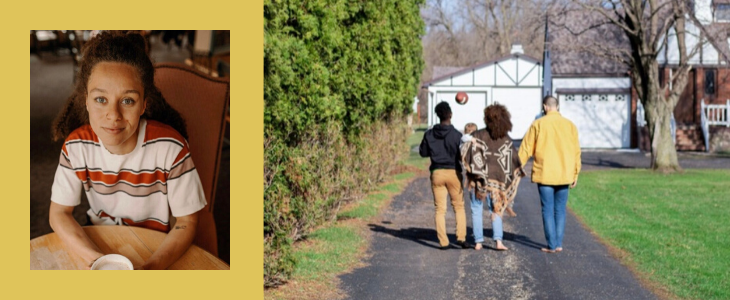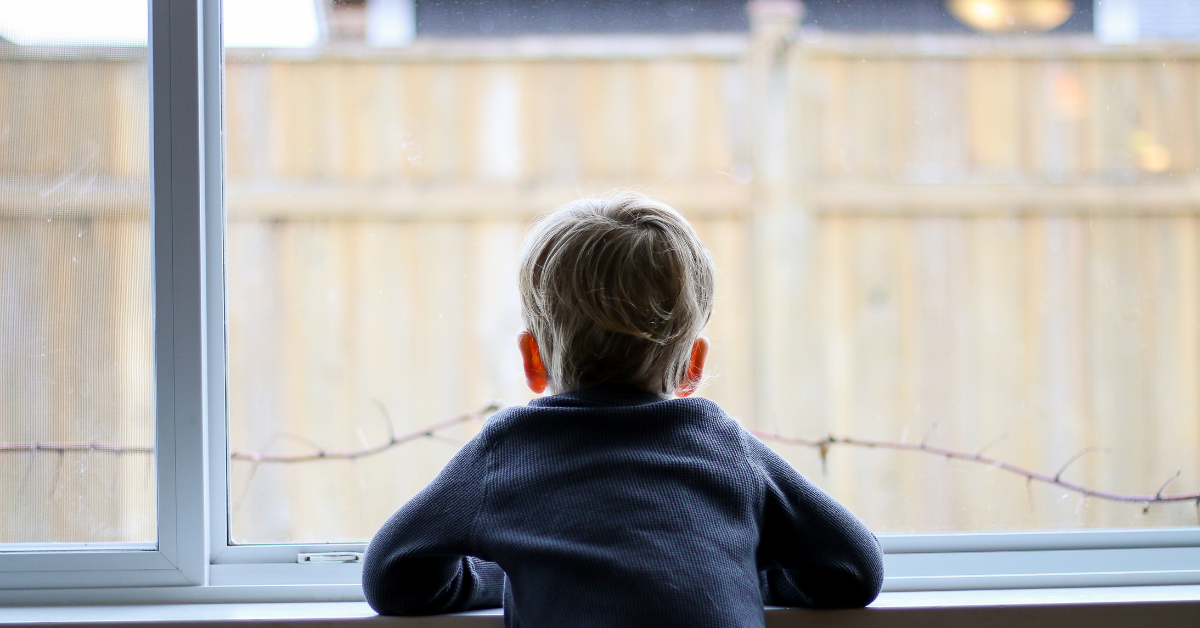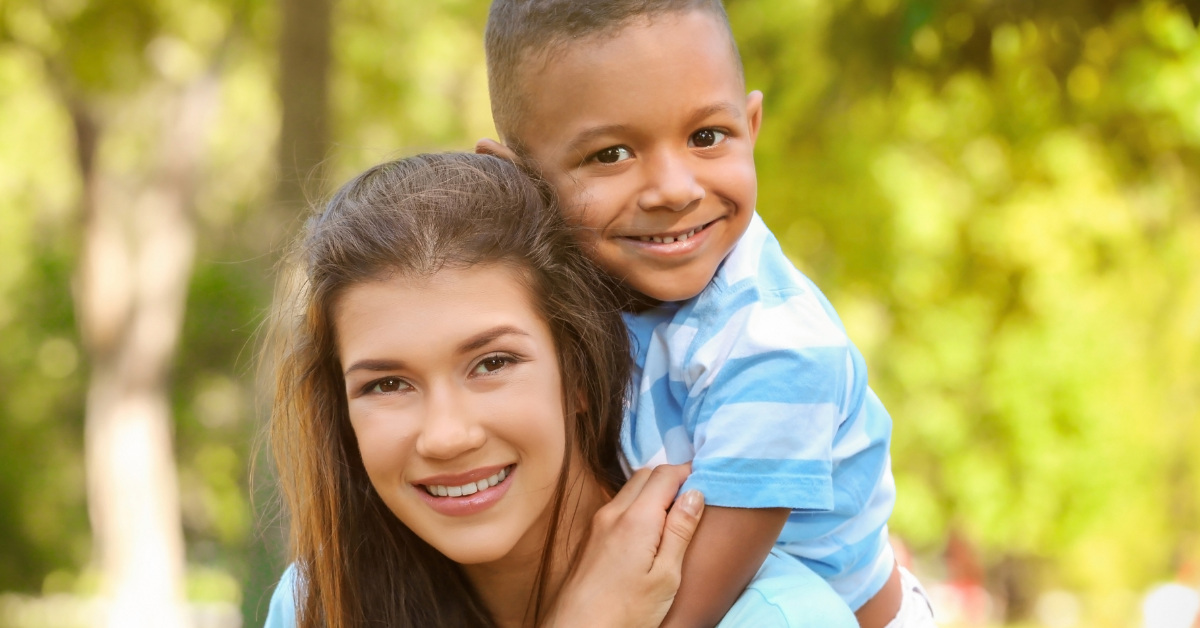The Heartfelt Plea of a Former Foster Youth

Having followed Tori on social media for awhile, I knew that she would have a unique perspective to share with the adoption community during National Foster Care Month, and she was kind enough to do an "email interview." What follows is her very heartfelt plea for a better understanding of the trauma that is often endured by children and youth in the foster care system, and the opportunity we have to better understand and acknowledge the depths of that pain. May her words move us to a greater level of awareness and compassion for all.
Tori, for a lot of folks who read this, it will be their first introduction to you. What do you want to share about your connection to foster care and adoption?
I first went into the foster care system when I was four years old because my mom sold drugs. I had been well taken care of and we had a lot of money, so when my foster mom presented mac and cheese or peanut butter and jelly to me at the dinner table, I refused to eat it. I was used to eating things like crab legs and steak. The second time I went into foster care looked starkly different. The past seven years since my mom and I had reunified, I had grown up in dysfunction, been brutally abused, neglected, and experienced poverty. I also had a biological sister 10 years younger than me. I was like her mother figure. My mom’s instability took us into foster care. I was so grateful because I thought we would have a stable family and joyful life, but we were separated after our first home together. I resided in 12 different homes and emancipated when I was 18 years old. It was devastating to never be adopted, but soon after emancipation, my track coach welcomed me into his family. We changed my last name to his family name. Additionally, I came to understand that I was adopted by my Abba Father in Heaven. I’ve been involved in advocacy regarding the family, foster care, and adoption since I was 16. I believe it is my calling to continue to do so, for the glory of God. My husband and I have an 18 month old son, a baby on the way, and we are foster parents to a teen boy.

As we think about National Foster Care Month, you say it can be easy to only focus on and celebrate those stories of foster youth who seem to have defied all the odds, when in fact, there may be more going on beneath the surface, something that is vital for all of us to be aware of, and for parents especially to understand when fostering or adopting. So let’s try to unpack that a bit, piece by piece. First, what would you say are some of the most common misconceptions about adoption, and about youth who are or were formerly in the foster care system? And, how does that relate to your own experience?
The statistics about foster youth are pretty frightening, and the stereotypes placed upon foster youth are pretty demeaning and frightening. The foster youth who have overcome them should be celebrated and seen. That’s part of the reason you’re interviewing me, right? But I think it’s important for me to first say I did not overcome. God has overcome and allowed me to be a part of His Kingdom mission. Secondly, what you see of me on the outside, or on Instagram, or even face to face, is not the full story. I try to share this as much as appropriate, but I am not perfect or completely healed and I won’t be until heaven. I still have triggers. I still go to counseling. I think I will always have to be in counseling. I still have anxiety attacks where I struggle to breathe and trauma enters in and the Enemy uses my past to hurt me because He knows God wants to use it for His glory. But that’s one of the many reasons I want to communicate in this space. Current and former foster youth can be successful and have joy and still deal with the deep trauma and pain that stems from past abuse, abandonment, and neglect. I am very fortunate and privileged to be considered an overcomer by society. But I write and speak because my heart is burdened and broken for every single one who is oppressed, underprivileged, and without a family. I speak of my life as a blessing because it is. But trauma still manifests itself in my life. I think it is easy to look at the stories of “successful” or “well-adjusted” foster and adopted youth and be blinded to the reality that trauma remains. It is the trauma unseen and rarely talked about. There are common behaviors that occur behind closed doors in the lives of “successful” foster and adopted youth, because of the pressures they face -- to overcome, to break the cycles of abuse and neglect, to not be a statistic, and to contradict the stereotypes, not just so they will find freedom, but so that the foster youth who come after us will. The list of possible pressures goes on forever and from my own experience, I know people lavish praise on foster youth who check the boxes.
Can you give us an example that illustrates how this might play out?
In the so called “successful” foster youth, in my experience, and in the communities I am in, I’ve seen that it is so often hidden, behind closed doors. Panic attacks. Anxiety attacks. Tears and overwhelming fear that flashbacks bring. I’ve tried to explain to close people who aren’t involved in the foster care system what this looks like, but I’m often told “Well, you have the choice for what to think” or “It isn’t outside factors. It’s in your mind.” I think that’s true, but I also know outside factors trigger trauma, and foster youth can be doing all that they are supposed to do to combat the trauma -- counseling, exercise, being in community, prayer or meditation, the list goes on and on -- but it’s not a choice whether the trauma enters. We don’t want it there. If it was our choice it’d be gone forever.
I can imagine that some may hear this and could begin to think that trauma is responsible for every negative interaction or personal struggle that a foster alumni or adoptee experiences. Is that the case, in your opinion?
I’m not trying to say that everything is trauma, and make signs even more difficult to decipher than they already are; but I want us to be aware of the signs of trauma among foster youth, formerly fostered youth and adoptees, because that’s what this month is all about – awareness. Parents with loving intentions desire to see their children do well, so youth whose trauma results in high achievement and hidden breakdowns are typically the most praised and least acknowledged. But “successful” foster youth still have trauma. “Well-adjusted” fostered youth need people to show up when they're being undesirable. That’s actually what we all need. We hide away, but also make it known we can’t be present, hoping someone will be present for us.
What, in your mind, do parents, and the public at large, need to better understand, in order to dismantle some of those stereotypes?
Foster care and adoption is sacred because it reflects God’s adoption of us. But adoption also involves loss, because a child has lost the people they are biologically closest to, the people who most others have in their corner. Adoption and fostering is both, not one or the other. In light of National Foster Care Awareness Month, it is important that we not only raise awareness of just the good or just the bad, but that we hold space and honor all the faces of foster care. Many think about the traumatized foster youth as the rebel who is homeless, who does drugs, or drinks too much alcohol, the nonconformist who can’t help but ruin every relationship she enters into, or the individual who struggles to keep a job and pay the bills. I know because when people hear my story they say the words I dread, but know are coming, “Wow, you don’t look like a foster youth!” And when I attempt to challenge them by asking, “What do you mean?” they reply that it’s because I don’t fit into one of those stereotypes. Trauma and triggers appear differently on everyone, just like blemishes or scars appear different on each face.
As an advocate for foster youth, and a current foster parent, what do you hope a more trauma informed understanding and awareness will create in the hearts, minds and actions of our culture towards foster care and adoption?
I’m not saying we shouldn’t admire foster youth for what they’ve overcome, but I am screaming out for the current and former foster youths that do not know how to yet communicate the symptoms of their trauma. Perfectionism and striving for endless accolades can be valid signs of trauma, just as much as screaming, crying, cursing, and even violence. Cut the pressure, limit the stereotypes, stop throwing statistics on foster youth. Speak truth about their identity.
Thanks so much for sharing your heart and personally lived experiences. Is there anything else you want to share with our community of adoption professionals, adoptive parents and prospective adoptive parents?
I just want to propose the question: How are you going to change the way you are present for those in the darkness, or how will you start being present for those hiding in the shadows?
About Tori:
Tori Petersen is a former foster youth, wife, biological mom, & foster mom. She advocates for the preservation of the family, foster care, adoption, and vulnerable youth. Her passion is the gospel. She hopes to let her Abba Father be known and loved through her writing and speaking. If you’d like to follow her story further you can find her on Instagram @torihopepetersen or torihopepetersen.com



